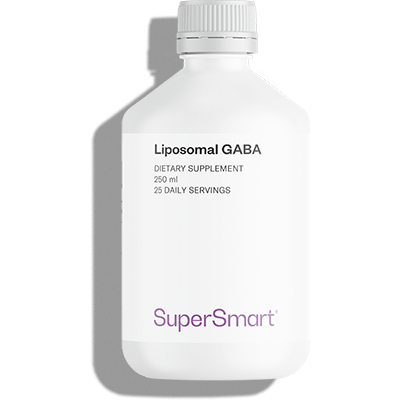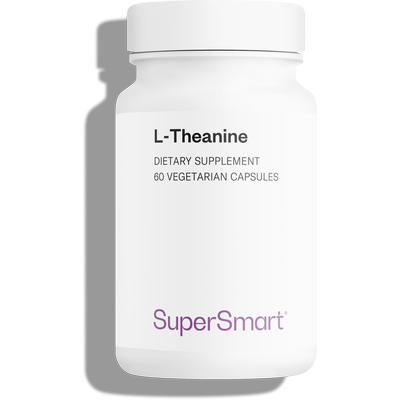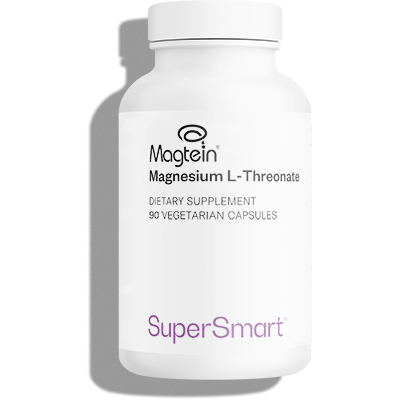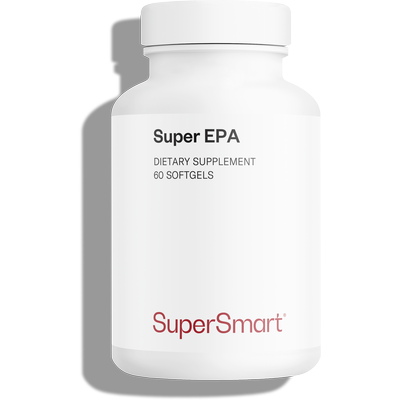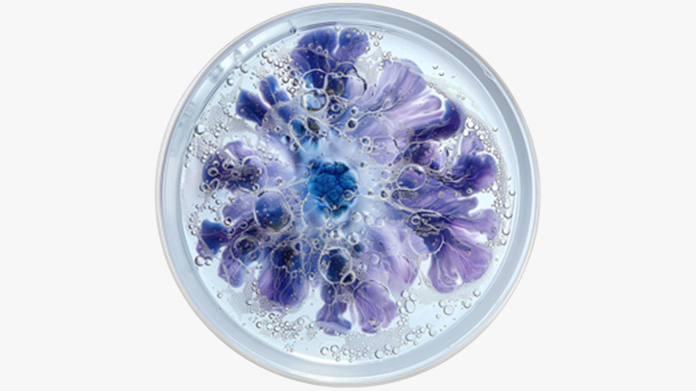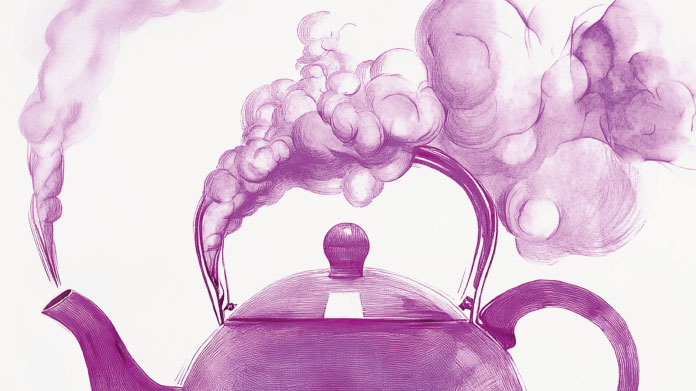Mental disorders: recent studies point to brain inflammation
Depression, schizophrenia... What if inflammation of the brain partly explained the onset of mental disorders?

Reminder: what is inflammation?
Inflammation is a normal immune reaction triggered in response to an external or internal attack on tissues (1).
This may be of chemical, traumatic, toxic or microbial origin, such as an injury, an infection or an allergen.
It involves white blood cells (leukocytes) on the front line, guided by a set of messengers (prostaglandins, leukotrienes, etc.) that facilitate their influx into the affected area.
When it is short-lived (acute inflammation), it is a useful, if not essential, defensive mechanism for maintaining our physical integrity.
However, it becomes problematic when it persists and remains ‘in the background’: this is known as chronic inflammation, or low-grade inflammation (2). Various factors, such as stress, smoking, a diet rich in sugar, saturated fats and additives, a sedentary lifestyle and a lack of sleep, tend to maintain it.
It has already been established that a chronic inflammatory state is the breeding ground for many autoimmune and metabolic diseases, such as type 2 diabetes (3).
But what about mental and psychiatric disorders? Are they also correlated with silent inflammation? Researchers are now answering in the affirmative...
Two new studies point to a link between cerebral inflammation and mental health
A comprehensive review published in January 2025 explored in greater detail the nature of the links between neuroinflammation and depression (4).
This particularly complex relationship is thought to be bidirectional.
On the one hand, cerebral inflammation is thought to precipitate the onset of depressive symptoms via various mechanisms: an increase in pro-inflammatory cytokines, activation of the hypothalamic-pituitary-adrenal (HPA) axis involved in the production of cortisol (the ‘stress hormone’) and altered synthesis of serotonin (the ‘happiness hormone’).
On the other hand, chronic stress activates microglia, the immune cells that reside in the central nervous system, and triggers the release of inflammatory mediators (IL-1β, TNF-α).
By disrupting neurotransmission and neuroplasticity, these inflammatory mediators predispose individuals to mood disorders, paving the way for a formidable vicious circle.
The second review, published in February 2025, examines the role of neuroinflammation in the development and progression of schizophrenia (5).
One of the studies mentioned, involving 41 patients with acute psychosis and schizophrenia, again revealed a significant increase in certain pro-inflammatory cytokines, notably IL-6, IL-2R and IL-8, compared with the control group.
A positive correlation was also found between symptom severity and IL-6 and IL-2R levels.
This inflammatory 'surge' could partly explain the changes in the metabolic pathways of dopamine, glutamate and tryptophan that are characteristic of this disease.
To sum up: what is the link between cerebral inflammation and mental disorders?
In the light of previous studies and current knowledge, it seems that cerebral inflammation may affect mental health in a number of ways:
- reduced serotonin synthesis: certain inflammatory molecules are thought to prevent the conversion of tryptophan into serotonin, which plays a role in mood regulation, in favour of neurotoxic compounds (such as quinolinic acid) (6);
- glutamate–GABA imbalance: clinical and preclinical data show deficits in glutamate and GABA signalling in major depressive disorder, likely to modify behavioural responses (7);
- excess glucocorticoids: a recent hypothesis raises the question of a direct pro-inflammatory effect of cortisol, which would perpetuate a cycle of stress and depression by affecting, in particular, the region of the hippocampus linked to emotional regulation (8);
- activation of microglia: immune cells in the brain, stimulated by inflammatory substances or stress, are thought to release free radicals and cytokines that fuel local inflammation and alter neuronal circuits (9).
However, it would be simplistic to see neuroinflammation as the sole cause of mental disorders, which also depend on genetic, psychosocial and environmental factors.
Natural solutions to combat brain inflammation?
Complementary natural approaches are helping to curb inflammation levels at both cerebral and systemic levels.
It appears that regular physical activity and a balanced diet rich in antioxidants and healthy fatty acids, such as the Mediterranean diet or the MIND diet (originally created to prevent cognitive decline), have a positive effect on mental health (10-11).
At the same time, certain substances are recognised for their ability to modulate the inflammatory response and/or directly support brain and mental health.
Among minerals, magnesium ranks first: by regulating the glutamate-GABA balance, it contributes to the normal functioning of the nervous system and normal psychological function (12). When supplemented, magnesium threonate (used in Magnesium Threonate) is particularly well absorbed by brain tissue, due to its ability to cross the blood-brain barrier (13).
The importance of omega-3 fatty acids in mediating cerebral inflammation also seems to be confirmed. In particular, studies suggest that EPA (eicosapentaenoic acid) supplementation could reduce certain inflammatory markers in people with depression (14). Highly-dosed supplements (such as Super EPA) make it easy and effective to optimise intakes.
Extracted from green tea, L-theanine is an amino acid that has attracted the attention of brain nutrition researchers for its supposed relaxing and tranquillising properties. In rats, it has been shown to have an anxiolytic effect by modulating hippocampal activity and glutamate levels (see also L-Theanine) (15).
Thanks to its curcuminoid content, turmeric is one of the most powerful natural anti-inflammatories and antioxidants (16). Its synergistic association with other compounds such as nettle or cat's claw, which support the immune system, broadens its spectrum of action (InflaRelief, which is entirely dedicated to inner balance, combines these 3 extracts with 9 other natural nutrients, including boswellia, tulsi and rosemary, among others) (17).
We've already mentioned its name several times, and with good reason: GABA, or gamma-aminobutyric acid, is the main inhibitory neurotransmitter in the central nervous system. Its main function is to delay the effects of glutamate in order to reduce neuronal excitability. It is therefore generally associated with a return to calm and serenity. This explains why people who are stressed or depressed frequently report experiencing better emotional management when they supplement with GABA (note that the liposomal form presented in Liposomal GABA is the one that offers the best bioavailability) (18).
SUPERSMART ADVICE
References
- Stone WL, Basit H, Zubair M, et al. Pathology, Inflammation. [Updated 2024 Aug 11]. In: StatPearls [Internet]. Treasure Island (FL): StatPearls Publishing; 2025 Jan-. Available from: https://www.ncbi.nlm.nih.gov/books/NBK534820/
- Pahwa R, Goyal A, Jialal I. Chronic Inflammation. [Updated 2023 Aug 7]. In: StatPearls [Internet]. Treasure Island (FL): StatPearls Publishing; 2025 Jan-. Available from: https://www.ncbi.nlm.nih.gov/books/NBK493173/
- Rohm TV, Meier DT, Olefsky JM, Donath MY. Inflammation in obesity, diabetes, and related disorders. Immunity. 2022 Jan 11;55(1):31-55. doi: 10.1016/j.immuni.2021.12.013. PMID: 35021057; PMCID: PMC8773457.
- Sălcudean A, Popovici RA, Pitic DE, Sârbu D, Boroghina A, Jomaa M, Salehi MA, Kher AAM, Lica MM, Bodo CR, Enatescu VR. Unraveling the Complex Interplay Between Neuroinflammation and Depression: A Comprehensive Review. Int J Mol Sci. 2025 Feb 14;26(4):1645. doi: 10.3390/ijms26041645. PMID: 40004109; PMCID: PMC11855341.
- Nayak U, Manikkath J, Arora D, Mudgal J. Impact of neuroinflammation on brain glutamate and dopamine signalling in schizophrenia: an update. Metab Brain Dis. 2025 Feb 5;40(2):119. doi: 10.1007/s11011-025-01548-3. PMID: 39907868; PMCID: PMC11799129.
- Dawood S, Bano S, Badawy AA. Inflammation and serotonin deficiency in major depressive disorder: molecular docking of antidepressant and anti-inflammatory drugs to tryptophan and indoleamine 2,3-dioxygenases. Biosci Rep. 2022 May 27;42(5):BSR20220426. doi: 10.1042/BSR20220426. PMID: 35506370; PMCID: PMC9142829.
- Duman RS, Sanacora G, Krystal JH. Altered Connectivity in Depression: GABA and Glutamate Neurotransmitter Deficits and Reversal by Novel Treatments. 2019 Apr 3;102(1):75-90. doi: 10.1016/j.neuron.2019.03.013. PMID: 30946828; PMCID: PMC6450409.
- Amasi-Hartoonian N, Sforzini L, Cattaneo A, Pariante CM. Cause or consequence? Understanding the role of cortisol in the increased inflammation observed in depression. Curr Opin Endocr Metab Res. 2022 Jun;24:100356. doi: 10.1016/j.coemr.2022.100356. PMID: 35634363; PMCID: PMC7612780.
- Wang H, He Y, Sun Z, Ren S, Liu M, Wang G, Yang J. Microglia in depression: an overview of microglia in the pathogenesis and treatment of depression. J Neuroinflammation. 2022 Jun 6;19(1):132. doi: 10.1186/s12974-022-02492-0. PMID: 35668399; PMCID: PMC9168645.
- Radkhah N, Rasouli A, Majnouni A, Eskandari E, Parastouei K. The effect of Mediterranean diet instructions on depression, anxiety, stress, and anthropometric indices: A randomized, double-blind, controlled clinical trial. Prev Med Rep. 2023 Oct 10;36:102469. doi: 10.1016/j.pmedr.2023.102469. PMID: 37869542; PMCID: PMC10587518.
- Kamrani F, Kachouei AA, Sobhani SR, Khosravi M. Nourishing the mind: how the EAT-Lancet reference diet (ELD) and MIND diet impact stress, anxiety, and depression. BMC Psychiatry. 2024 Oct 19;24(1):709. doi: 10.1186/s12888-024-06165-5. PMID: 39427151; PMCID: PMC11490120.
- Papadopol V, Nechifor M. Magnesium in neuroses and neuroticism. In: Vink R, Nechifor M, editors. Magnesium in the Central Nervous System [Internet]. Adelaide (AU): University of Adelaide Press; 2011. Available from: https://www.ncbi.nlm.nih.gov/books/NBK507254/
- Zhou X, Huang Z, Zhang J, Chen JL, Yao PW, Mai CL, Mai JZ, Zhang H, Liu XG. Chronic Oral Administration of Magnesium-L-Threonate Prevents Emotional Deficits by Normalization of TNF-α/NF-κB Signaling in Rats. Neurosci Bull. 2021 Jan;37(1):55-69. doi: 10.1007/s12264-020-00563-x. Epub 2020 Aug 28. PMID: 32857294; PMCID: PMC7811972.
- Lamon-Fava S, Liu M, Dunlop BW, Kinkead B, Schettler PJ, Felger JC, Ziegler TR, Fava M, Mischoulon D, Rapaport MH. Clinical response to EPA supplementation in patients with major depressive disorder is associated with higher plasma concentrations of pro-resolving lipid mediators. 2023 May;48(6):929-935. doi: 10.1038/s41386-022-01527-7. Epub 2023 Jan 12. PMID: 36635595; PMCID: PMC10156711.
- Li MY, Liu HY, Wu DT, Kenaan A, Geng F, Li HB, Gunaratne A, Li H, Gan RY. L-Theanine: A Unique Functional Amino Acid in Tea (Camellia sinensis L.) With Multiple Health Benefits and Food Applications. Front Nutr. 2022 Apr 4;9:853846. doi: 10.3389/fnut.2022.853846. PMID: 35445053; PMCID: PMC9014247.
- Sorrenti V, Contarini G, Sut S, Dall'Acqua S, Confortin F, Pagetta A, Giusti P, Zusso M. Curcumin Prevents Acute Neuroinflammation and Long-Term Memory Impairment Induced by Systemic Lipopolysaccharide in Mice. Front Pharmacol. 2018 Mar 5;9:183. doi: 10.3389/fphar.2018.00183. PMID: 29556196; PMCID: PMC5845393.
- Arado GM, Amatto PPG, Marins M, Rizzi ES, França SC, Coppede JDS, Carmona F, Pereira AMS. Anti-inflammatory and/or immunomodulatory activities of Uncaria tomentosa (cat's claw) extracts: A systematic review and meta-analysis of in vivo studies. Front Pharmacol. 2024 May 31;15:1378408. doi: 10.3389/fphar.2024.1378408. PMID: 38881881; PMCID: PMC11176511.
- Liwinski T, Lang UE, Brühl AB, Schneider E. Exploring the Therapeutic Potential of Gamma-Aminobutyric Acid in Stress and Depressive Disorders through the Gut-Brain Axis. Biomedicines. 2023 Nov 24;11(12):3128. doi: 10.3390/biomedicines11123128. PMID: 38137351; PMCID: PMC10741010.
Keywords
4 Days
The delivery was fast and the product…
The delivery was fast and the product is great
SOMMARIVA Gianni
5 Days
Great service and lots of information
Great service and lots of information
Gabi
8 Days
Service Satisfaction
I’m satisfied with the service; it fulfilled what it set out to do.
Anfhony Abreu
11 Days
Original product and fast delivery
Original product and fast delivery. I haven't started it yet, but will do soon.
Vincenza Catania
14 Days
Good quality
Good quality. Good service.
Leonel Guzman
16 Days
Top!!!!!!!!
Top!!!!!!!!
Michael
18 Days
Excellent!
Products are great and delivered fast!
PARDINI Debora
19 Days
From order to receive the product
From order to receive the product, the process is smooth & fast. It’s good to customers.
WONG Mei Ling
20 Days
Fast delivery
very quick delivery to italy. product is good.
Customer
21 Days
Prompt delivry !!👍
Prompt delivry !!👍
SWEET Christine
21 Days
Good delivery and flawless quality
AS far as delivery and the visual quality are concerned, Supersmart is excellent. I will not comment on the efficacy of the products themselves, since that is only possible over a longer period and in a large customer base compared to people who do not consume a particular product.
Roger De Backer
22 Days
Perfect services
Perfect services, perfect support, great articles about products
Michaela Alali Beitlová
23 Days
Great experience and effective supplements
I’ve purchased many types of supplements from this company over the course of years to treat a few issues, and I’m satisfied with their quality. After using them consistently for a period of time, I can say they met my expectations and I could feel real health benefits that built up over time. Deliveries are always quick. I recommend this company to anyone looking for high-quality supplements.
Giordano
23 Days
Es hat alles gestimmt
Es hat alles gestimmt. Top
marina thieme
26 Days
Great product
Great product, but still evaluating its effectiveness. Highly recommended. Super efficient delivery.
Chalise
of experience
your money back
##montant## purchase

